#DRAMATIC TELEVISION PROGRAMME
Explore tagged Tumblr posts
Text

It was rather dramatic that the scenes in space in ‘*’ had no sound whatsoever,
which is actually much more true to reality than most programmes would have us believe.
#Inspector Spacetime#* (episode)#Space Is Noisy (trope)#Space Is Noisy#Inverted Trope#dramatic scenes#Silence Is Golden (trope)#Silence Is Golden#no sound whatsoever#Truth In Television (trope)#Truth In Television#more so that most programmes#would have us believe
1 note
·
View note
Text
Its been awhile I'm doing another one of These Things
What TV Shows the Mercs would watch
Scout: Baseball. Obviously. He loudly complains about the cartoons Pyro puts on, but never makes a grab for the remote or leaves the room.
Soldier: He's half convinced that the TV uses Communist Technology™ to hypnotise people into becoming hippies and attempts to blow it up every couple of days. He conveniently forgets his beliefs during the superbowl (first aired in 67, he could totally watch it!).
Pyro: Cartoons. Dramatic movies. Anything with fire in it. Horror movies (they giggle and clap gleefully every time someone dies brutally). Has a love-hate relationship with movie musicals.
Demo: Fan of mystery shows, courtroom dramas, and shitty B-Movies. Especially enjoys the (explosive) special effects. It's sad that Highlander and Braveheart weren't sixties movies, considering how many of Demo's weapons, achievements, voicelines and etc reference them.
Heavy: Old lady tv. Cooking shows. Gardening programmes. Watches tv mostly to fall asleep in front of. Has that dad instinct where he can tell if you've changed the channel despite being asleep.
Engie: Documentaries about new technology, mostly. I can see him being the kind of guy who's really into those technicolour musical films. Would probably cry at the end of Wizard of Oz.
Medic: Horror movies! Watches them with Pyro and Demo mostly and complains about the gorey stuff not being medically accurate. Would get overly invested in stupid sitcoms and hate it.
Sniper: Watches nothing but nature documentaries. If the channel is changed he will simply leave the room. What the fuck ever. I like to think he has a large collection of tapes and a vhs player in his van. Falls asleep every movie night without fail.
Spy: Thinks television is mostly beneath him, but doesn't hate movies. Enjoys watching spy movies and mansplaining how he would have done it to anyone who'll listen.
#miss pauling has no time in her schedule for tv or cinema#admin prefers her personal cctv footage over actual shows#saxton would only watch stuff hes in and knowing australia hes probably in a lot#tf2#team fortress 2#headcanons#tf2 headcanons#tf2 scout#tf2 soldier#tf2 pyro#tf2 demoman#tf2 heavy#tf2 engineer#tf2 medic#tf2 sniper#tf2 spy#im too tired to think tbh
180 notes
·
View notes
Note
As a person of evident good judgement, I'm sure you're familiar with the works of the late, great Sir Terry Pratchett. He has the rare skill of mixing philosophy and politics into his comedy, it's quite delightful.
One such example is in his novel 'Going Postal'. He introduces the idea that, “A man’s not dead while his name is still spoken.” It's a beautiful sentiment. But I must confess, some of the shine has worn off it for me in recent years.
I'll cut to the chase: I died of typhoid fever in 49CE. And I mean died. I was done and gone and passed, leaving no more ripples on the surface of the world than any other Joe Nobody. My name had been long forgotten, the stone marking my grave long since worn away.
And then, to my surprise, I returned.
It started slowly, a gradual stirring of awareness. Then, in a great crashing wave, I arrived – full and real and vibrant, as alive as I had been before my sickness.
I've since learnt that there was an archaeological dig near my old home a few years ago. They discovered the stone, deciphered it despite the wear. My name returned to the world - and I returned with it.
At first I was just being mentioned in academic circles, cited here and there. Nothing dramatic.
But then hen, a writer named a character after me in a miniseries about Roman Britain. My name was on millions of lips - apparently I'm something of a fan favourite.
But I've seen the programme and it's all wrong! The character is nothing like me, for starters. And the life they've painted… Well, it is a good effort, I suppose. But it is not my life.
This is to say nothing of the fan interpretation. They barely seem to care about the text of the show at all! They extrapolate wildly, especially about my relationship with a certain centurion. The two of us share barely more than a minute or two of screen time!
I don't mind being back, per se. I enjoyed being alive, and I'm enjoying being back - especially the chance to catch up on my reading.
How can I correct the people's misinterpretations of me and my life? Or should I just let it go and enjoy my resurgence - however long it might last?
First of all, reader, congratulations on returning to this plane of existence. Unexpected as this return might be, I'm glad you're still finding ways to enjoy this new lease on… not life, exactly, but something rather like it.
I can well imagine how frustrating it might be to see people attaching your name and identity to an otherwise fictional character. But I think emphasising that difference is the first step in coming to terms with the situation.
This writer has shown a remarkable commitment to authenticity by choosing the name of a real Roman Briton to use in their screenplay. But seeking to create authentic fiction is a very different ambition than seeking to create a fully accurate representation of past events and the people who lived them.
I wish I could tell you that the viewers of this programme will understand this difference. Many will, but it is an unfortunate truth that people often take historical dramas at face value and may not fully appreciate just how much of what they see has been at most tenuously inspired by historical research, and more likely invented whole cloth by the writers themselves.
But this is a misinterpretation of a television programme, not of you. These viewers are engaging with a piece of fiction, not with you as a real, historical person. This is especially true of those viewers who “extrapolate wildly” about the relationships between fictional character. They aren't misinterpreting you – they're creating their own fictions, inspired by the fiction they've consumed.
With that said, many fans of historical fiction are also interested in actual historical research. If you really want to educate people about life in Roman Britain, the fans of this programme might be a particularly receptive audience. You could try posting on social media about your experiences, using the events in the programme as a jumping off point for your discussion of real history.
Do tread carefully, though. You need to keep a clear distinction between yourself as a real, historical figure and the character who bears your name. You aren't trying to “correct” the television programme or criticise its portrayal, but rather offering your reflections as additional insights for anyone who might be interested.
Please remember though, you are under no obligation to engage with this fan community at all. I see no reason at all why you can't simply leave them to their extrapolations, and concentrate on enjoying yourself for as long as you're with us.
[For more creaturely advice, check out Monstrous Agonies on your podcast platform of choice, or visit monstrousproductions.org for more info]
#answered#the nightfolk network#monstrous agonies#advice#urban fantasy#fantasy#writblr#short fiction#roman history#roman britain#history#archaeology#terry pratchett#gnu pterry
39 notes
·
View notes
Text




The actress Molly Weir passed away on November 28th 2004 aged 94.
Probably best known for the character Hazel the McWitch in the BBC TV series Rentaghost, Molly was brought up in the Springburn area, she began in amateur dramatics. In her early professional career, she was a well-known radio actress, featuring in many comedy shows,in the 50's sitcom Molly had a regular role as the housekeeper, Aggie McDonald, in Life With The Lyons. In film she played one of The Kerr sisters in The Prime of Miss Jean Brodie with Helena Gloag, a partnership she renewed in the Albert Finney film Scrooge, playing old sisters in debt to Mr Scrooge.
In the 1970s she was one of the presenters of Teatime Tales, a television series broadcast by STV in which she recalled her childhood. As well as the childrens programme Rentaghost Molly will be remembered by a lot of us as the woman on the Flash adverts and the tag "flash cleans floors/baths without scratching"
She was also a popular public speaker, newspaper columnist and her memoirs run to eight volumes.
After her death, Molly Weir's ashes were scattered on the banks of Loch Lomond, a favourite holiday location of both her and her famous brother Tom Weir; and almost all her estate (of nearly £1.9 million), was bequeathed to charities.
13 notes
·
View notes
Text
thank you @annabtg for the tag! xx
three ships: it's funny because usually romantic ships are what i'm least interested in within media...jily is literally my one exception and i'm obviously feral for them. i'll try reading anything at least once though! i'm just usually more interested in the complexities of familial and platonic relationships.
first ship: same answer...james/lily
last song: back to december by taylor swift (for...a...fic-related...reason)
last movie: coco
currently reading: the small and the mighty by sharon mcmahon
currently watching: the only thing ever on the television at our home is sport. baseball and football, most of the time, with a sprinkling of american football and basketball. i work in education, so i don't have an attention span for dramatic shows or immature comedies honestly. which probably makes me boring...but i'll stick with my comfort sport programmes.
currently eating: it's 10pm so i've just finished a cuppa tea and need ot resist the urge to make another or i'll be using the toilet all night, ha!
currently craving: the edible cookie dough bites from crumbl cookie! and for my toddler to get over her 'can i sleep in youuuuuur bed mummy?' phase 🥲
Tagging: anyone who hasn't done this and would like to! (i've seen a lot of these curculating, so don't want to risk being redundant in tagging specifics xx)
9 notes
·
View notes
Text
Two families in East Germany, longing for freedom, built their own hot air balloon out of masses of taffeta, bought secretly in preparations that took more than a year.
They planned to flee and cross into West Germany in a daring plan put into action in September 1979.
They set out in their craft on a moonlit September night - after a failed attempt when they ran out of gas in the air and crashed into the bushes below.
However, they managed to reach the West in their second try, making it out of the country in a highly dramatic feat just before the East German police caught up with them.
The two families were dicing with death, as guards protecting the border in East Germany, then part of the Eastern Bloc, were ordered to use lethal force to prevent people defecting to the West.
The inner German border and the Berlin Wall were heavily fortified with watchtowers, land mines, armed soldiers and other measures to prevent illegal crossings.
"We didn't know anything about ballooning," says Günter Wetzel, 69, from one of the two families who managed to flee in their homemade balloon, who researched at length after a television programme provided inspiration.
When asked whether his dreams have been fulfilled in his new home, he replies soberly, "What do you mean by dreams?" Wetzel, who retrained as a car mechanic, was sure it would all work out.
His story was later made into several films. His character was played by US star Beau Bridges in the Disney film "Nightcrossing" and by David Kross in a German movie called "Balloon" (2018).
Sadly the films did not make him rich, however. "We were naive," he says, looking back.
Exploring the former death strip
A sign located on what used to be East Germany's infamous death strip now tells visitors about the balloon flight, known worldwide for its boldness.
Following World War II, Germany was divided for decades, separated by a lengthy border that can now be walked by hikers.
Where the death strip ran along the inner German border, there is now a green belt between the Saxon-Bavarian Vogtland region and the Baltic Sea.
Day trippers are drawn by the combination of forests, moorland, rivers, heathland and low mountain ranges.
Hiking journalist Thorsten Hoyer has covered 1,250 kilometres of the roughly 1,400-kilometre-long green belt in less than a month, but he does not recommend it, saying, "70% of it is over concrete and asphalt."
Nature is working on reclaiming the terrain, but has not yet managed completely.
The route is modelled on the Kolonnenweg on the east side, where the former East Germany border guards patrolled over perforated slabs.
Today, there is greenery everywhere along the path - though less in the way of tourist infrastructure and in places, there could be better signposting.
So it is better if cyclists and hikers focus on select routes, perhaps in the Franconian Forest where the states of Bavaria and Thuringia meet.
'Little Berlin'
The river Saale, once a border, flows leisurely along and builds up to a smooth surface near Hirschberg and is lined with trees and bushes, while canoeists rush over a weir. If you cycle along the colonnade path, watch out for the wide depressions in the concrete.
The situation eases on a forest path and the little road to Mödlareuth. Here, Americans used to call the village "Little Berlin."
Just like the German capital, Mödlareuth was divided by a wall and you can still visit the German-German Museum which has a memorial to the separation of the country. Visitors can also see a section of the Wall, and watchtowers and barbed wire fences bear witness to the painful division.
Britt Hornig, who is currently wandering through the museum grounds, is deeply moved and agitated. She used to work as a paediatric nurse in East Germany. "There can't be anything like this again. That was my childhood, my youth. It was absolute madness what they did to us."
"I went to the demonstrations in Leipzig every week and fought for freedom until the Wall came down."
Otto Oeder, a former border policeman and now 79 years old, also recalls the division. "I thought the world ended there," he says, describing his deployment on the Bavarian side of the Iron Curtain.
He wrote and published his book about those divided years, recalling refugees who made it through. "At our police station, we first dressed them in dry clothes, donated by us, not paid for by the state."
He also set up a regular meeting point in a pub for people who had crossed the border and could share their anecdotes. Anyone loyal to the East German regime was unwelcome.
Hiking through the past
Frankenwald-Steigla is the name of a network of circular hiking trails in the Franconian Forest, three of which illustrate the German-German past.
The Wetzsteinmacher trail, 5.3 kilometres long and starting below Lauenstein Castle, leads up to the Thüringer Warte. It is a viewing tower on the summit of the Ratzenberg and provides a fantastic vantage point to survey the area. Climb 117 steps and you can take in a view of the forests of the Thuringian-Franconian Slate Mountains.
Other climbs include the challenging Grenzer-Weg trail - 16.8 kilometres from Carlsgrün - and the moderate, recently inaugurated 10-kilometre Grünes Band trail, which starts in Mitwitz.
Along the way, a stream babbles and cuckoo calls echo through the forest. You can hear birdsong, while dewdrops sparkle like pearls on blades of grass. Dragonflies dance in the sun and it is so peaceful that you cannot imagine anything ever happened here.
8 notes
·
View notes
Text
youtube
On November 15th, 1972, Elvis played the 15 000 seat Long Beach Civic Arena, for the second of two nights. The show was captured in an audience recording.
The Long Beach Press-Telegram;
"…He’s the King and even if he seemed a little bored with the audience; his routines trite, painfully coached and contrived, he was still good. Gone is the sneer. Gone, the gyrating hips - tucked neatly into a girdle cinch which he wore underneath a white jumpsuit with the silver studs and garish gold belt. Gone, too, is his wife. And Wednesday night, the King seemed a little bit melancholy, a little preoccupied with his own problems to really get into a dialogue with the audience… His voice is mature - grown rich with life. His smile is warm and magical…"
The Valley News;
"…Elvis Presley managed to present an inspiring performance last week at the Long Beach Arena despite lacklustre supporting acts and a distracting hard sell of his posters and records before the show and during intermission. He thrilled the 15,000-sell-out crowd with many of his early hits along with a few more recent songs… Elvis used everything in his bag of tricks including wildly swinging hips, exaggerated vocal style and even tossing several of his scarfs to the crowd. Still, despite the dramatics, Presley has a rock-gospel voice that can't be beat by any current singer. His showmanship only adds to the entertainment, helping to make Elvis concerts more than just a musical treat…Overall, Presley's portion of the show was quite enjoyable and was good enough to overcome the weakness of the concert package as a whole…"

Marty Pasetta, an accomplished maker of entertainment and variety programmes for television, assigned by NBC to produce and direct the upcoming satellite TV special to be known as Aloha From Hawaii, was in town to get a feel for the performance before actually meeting with Elvis to discuss some set design and production matters. Pasetta found the concert musically strong but visually boring, not conducive to exciting television, that Elvis needed to move more on stage ('He stood there like a lump', Pasetta said in a later interview), and lose a little weight before the broadcast.
Having argued with a predictably belligerent Colonel Parker, Pasetta nervously presented his proposed stage and lighting designs during a slightly bizarre meeting with Elvis and some members of the Memphis Mafia, who wore sunglasses indoors and who prominently displayed their handguns. When Pasetta directly broached the tricky subject of Elvis’ weight, the excruciating tension dissolved into Elvis’ laughter, and a promise that he would do everything Pasetta asked of him to ‘make super magic for the tube, together’.
The tour concluded with three sold out shows at the Honolulu International Centre, Hawaii, on November 17th and 18th, where more details of the upcoming satellite show would be revealed. Elvis played just two more shows at the Long Beach Arena, with matinee and evening performances on April 25th, 1976.
(Tour information and reviews thanks to www.elvisconcerts.com)
#elvis history#elvis presley#elvis in the 70s#rock history#elvis fans#elvis 1970s#elvis#live music#musicians#1970s rock#long beach#Youtube
26 notes
·
View notes
Text


This is the fourth in our occasional series featuring luminaries of stage and screen with a strong personal and/or professional connection with Northeast England, inspired with thanks by @robbielewis. Previous profiles were of Jean Heywood, John Nightingale and Edward Wilson. This time, Sunderland born actor siblings Malcolm and Catherine Terris.
Malcolm Terris was born on January 11th, 1941, boarded at Barnard Castle School in County Durham, then worked as a cadet journalist at the Sunderland Echo before training as an actor.
He was active on British television from 1963, his style perfectly suited to larger than life characters, and is possibly best remembered for his role as Great War veteran and salt-of the-earth union leader, Matt Headley, in 34 episodes of the Tyneside interwar social-realism drama, When the Boat Comes In.
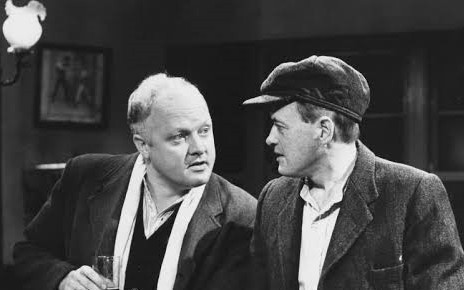
As Matt Headley, with James Bolam (Jack Ford) in When the Boat Comes In.
His more than 120 recorded screen credits include a variety of British television programmes, including Fall of Eagles, Doctor Who (Horns of Nimon, 1979), Reilly: Ace of Spies, three separate roles in Coronation Street, Our Friends in the North, The Bill, and a regular role in Rockliffe’s Babies. His final appearance was in Midsomer Murders in 2011.
His big screen appearances include as ship’s surgeon, with Anthony Hopkins as Bligh and Mel Gibson as Fletcher Christian, in The Bounty (1984), with Ricky Tomlinson in Mike Bassett: England Manager, and in Dickie Attenborough’s Chaplin, which starred Robert Downey Jnr in the title role. He has also appeared on stage including in productions of Othello and in a Broadway production of Hamlet.
He passed away at the artistes residential care home, Denville Hall, on June 6th, 2020, aged 79.
Catherine Terris was born in 1948, and trained at the London Academy of Music and Dramatic Art (LAMDA). She has been active in British television since 1972, appearing with her brother in seven episodes of When the Boat Comes In. Her other television work includes Z Cars, two roles in Coronation Street, Anna Karenina, Inspector Morse, Dalziel and Pascoe, Heartbeat, George Gently, and a regular role (15 episodes) in William and Mary with Martin Clunes and Julie Graham. She also appeared in the hugely successful feature film, The Best Exotic Marigold Hotel.
According to her page on the Coronation Street fan site, Corriepedia:
"...On stage she has appeared in productions of Faustus, A Rite Kwik Metal Tata, Andy Capp, Tight at the Back, Rose, Tom Jones, Billy Liar, Queuing for Everest and Into the Blue..."
Her most recent television screen credit is In the Club (BBC 2014-16) and latest big screen appearance was in the 2021 feature film, Martyrs Lane.

On stage with Sarah Gordy MBE (The A Word, Ralph and Katie) in the 2016 Arcola Theatre production of Into the Blue, written by Beverley Hancock and directed by Deborah Paige. Image from Sarah Gordy's official site.
#social history#working class history#tyne and wear#sunderland#british actors#british cinema#british television#british theatre#british culture#northeast england
20 notes
·
View notes
Text
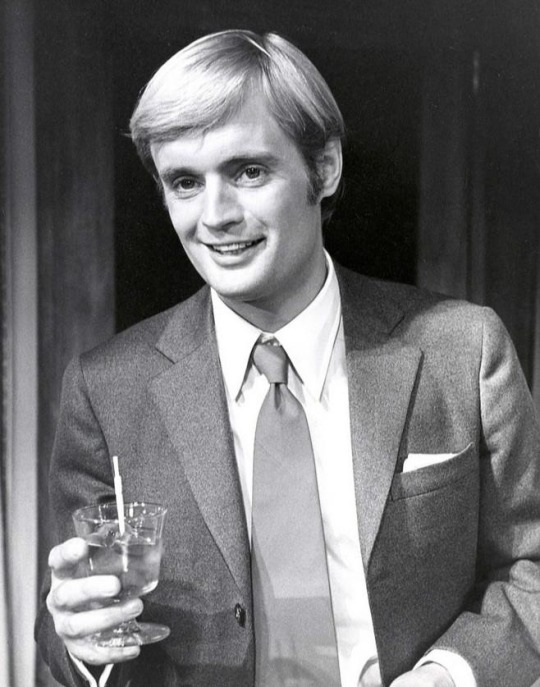
Remembering David McCallum- Scottish actor and musician.
David McCallum, who became a heartthrob in the hit series ‘The Man From U.N.C.L.E.,’ Dies at 90 💔 So sad a fine actor a great talent and a true gentleman.
An experienced character actor, he found fame in the 1960s as the enigmatic Illya Kuryakin. The British actor who played the mysterious secret agent Illya Kuryakin alongside Robert Vaughn’s Napoleon Solo in the 1960s hit spy drama The Man From U.N.C.L.E. was a secret international counterespionage and law-enforcement agency called U.N.C.L.E. (United Network Command for Law and Enforcement). The series premiered on September 22, 1964, and completed its run on January 15, 1968. The role turned the actor into a global sex symbol.
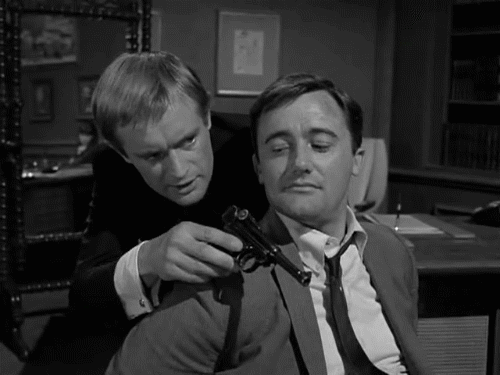
The success of the James Bond books and films had set off a chain reaction, with secret agents proliferating on both large and small screens. Indeed, Bond creator Ian Fleming contributed some ideas when the series was being developed, according to Jon Heitland’s book, The Man From U.N.C.L.E.: The Behind-the-Scenes Story of a Television Classic (special introduction by Robert Vaughn)
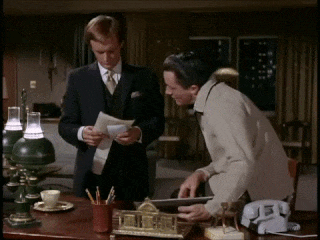
David McCallum took his place among one of the most iconic casts Hollywood ever assembled, nothing in the film’s title, The Great Escape, He was playing naval officer Eric Ashley-Pitt in the 1963 Second World War epic about the mass escape of British and Commonwealth POWs from German Stalag Luft III camp, through another POW turn in Colditz (1972-1974).
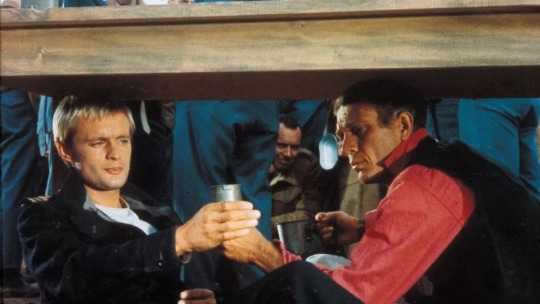
David McCallum with Steve McQueen on the set of the WWII epic. The Great Escape brought him to a US audiences. (Image: Moviestore/REX/Shutterstock)
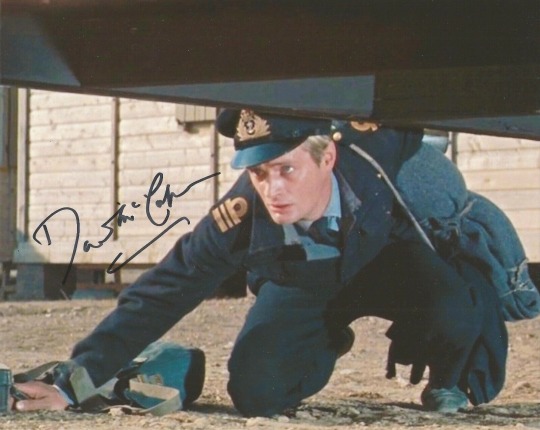
In 1975, he had the title role in a short-lived science fiction series, “The Invisible Man,” and from 1979 to 1982 he played Steel in a British sci-if chiller “Sapphire and Steel” (1979-1982). Over the years, he also appeared in guest shots in many TV shows, including “Murder, She Wrote” and “Sex and the City, a romantic comedy-drama television series filmed in New York.
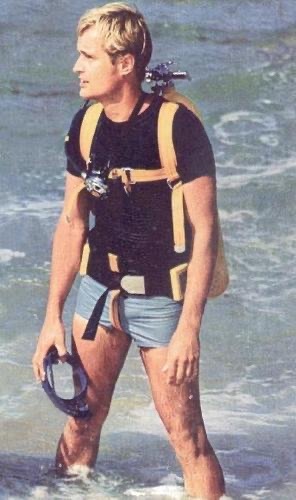
Later, in the 2000s as an eccentric medical examiner on “N.C.I.S.” he reached a new audience as Dr Donald "Ducky" Mallard, the medical examiner in US TV drama NCIS. McCallum was known for playing a pathologist on the hit CBS TV programme NCIS, which went on to generate several spinoff series, for twenty years. NCIS is the third-longest-running scripted, non-animated primetime television series in the U.S that is currently on air.
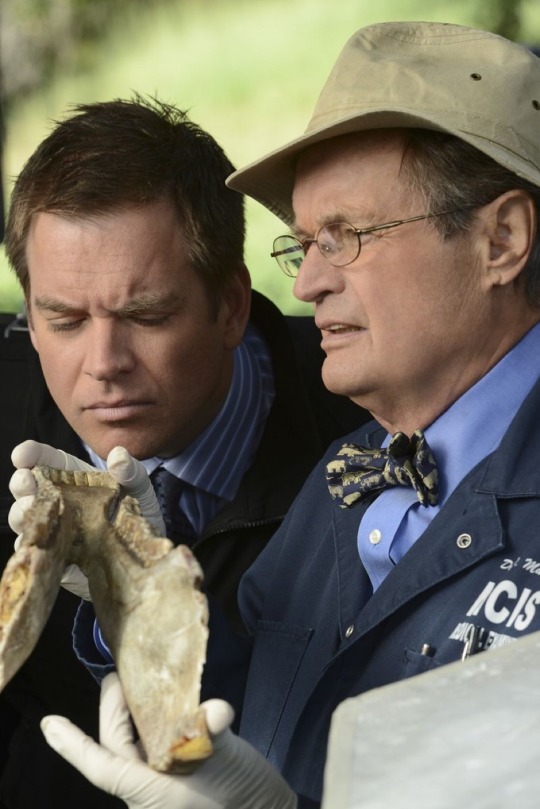
He was a true Renaissance man — he was fascinated by science and culture and would turn those passions into knowledge. For example, he was capable of conducting a symphony orchestra and (if needed) could perform an autopsy, based on his decades-long studies for his role on NCIS.

The Scottish-born actor died in New York on Monday 25th September 2023. He lived in Manhattan. David Keith McCallum was born on 19th September 1933 in the Maryhill (Scots: Maryhull - Scottish Gaelic: Cnoc Màiri) area of Glasgow, to a father who was the first violinist for the London Philharmonic and a mother who was a cellist.
David won a scholarship to the University College School in north London and took up the oboe with a view to a classical music career. Thus he originally pursued a career in music, training on the oboe and studying for a time at the Royal Academy of Music, though he soon left and enrolled at the Royal Academy of Dramatic Art. After RADA he started performing with repertory theatre companies.
David McCallum was drafted into the British military in 1951 and served two years, including 10 months in what was a small-arms expert. Not long after his discharge, he signed with the Rank Organization, a British production company, and began acting both in movies and on television.
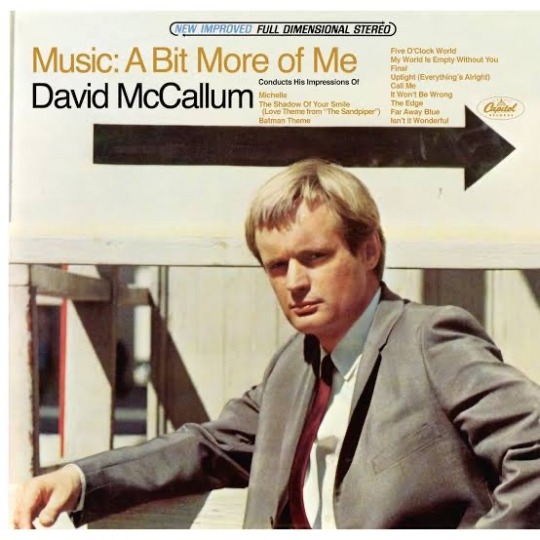
David McCallum a classically trained musician, created arrangements of popular songs of the day alongside a few original pieces and made four albums with forward-thinking producer and composer David Axelrod. Those groovy productions have been sampled a lot by trip-hop artists and more. In particular, “The Edge” from 1967’s
“The Edge” from 1967’s Music: For those who might have heard this song sampled elsewhere, you could have heard it in various places. From Masta Ace (“No Regrets”) to John Legend (“Actions”) his original was used in Edgar Wright’s Baby Driver, the 2017 film starring Ansel Elgort.
Check out the video below and listen for that familiar intro:
youtube
David McCallum - From The Man from U.N.C.L.E. to NCIS, and all performances in between, he was a multifaceted talent during 7 decades and 100 films and TV shows a True Legend.

R.I.P David 💔
1933-2023
#DavidMcCallum #Scottishactor #Britishactor #U.N.C.L.E. #IllyaKuryakin #TheGreatEscape #navalofficer #EricAshley #NCIS #secretagent #Edge #music #Ducky #DoctorMallard #actor #talent #gentleman #Legend #ripdavidmccallum
17 notes
·
View notes
Text
The effect that Social Media and Reality TV has on each other
I'm back this week with another topic: reality television. Although I am aware that not everyone finds this type of TV programming to be "high quality" or "worth watching," I have always found it to be fascinating. Additionally, I think the fundamental tenet of this performance is the idea that viewers come to relax rather than with high standards for artistic ability. From there, television producers have had such a profound impact on contemporary culture that, in my judgement, no other area of the entertainment business could match.

The wide genre of reality TV includes game documentaries, dating shows, makeover/lifestyle shows, and more.
reality sitcoms, talent competitions, court shows, docusoaps, and celebrity-based shows (Murray & Ouellette 2009). The shows are usually unscripted and depend on the participants' spontaneous conversations and interactions. Because people now find reality TV to be more entertaining and authentic, its appeal has increased dramatically in recent years.

· Reality TV to social media immorality
There's always a certain allure to watching anarchy unfold on TV. There is a general consensus that, despite the fact that "Reality TV" is meant to be unscripted, it's actually a free-for-all where producers can dramatise events to generate interest in the program—and that requires well-known people to intervene. Additionally, people would want to talk about television drama clashes on social media. The gifs and videos captured from these scenes would not vanish with the show's conclusion; instead, they would continue to exist as common cultural allusions and audiovisual reactions that people use to convey their thoughts and emotions. Thus, even though television transmission is failing, there is an amazing method that when we talk about cultural effect, their “cheapest” genre is still thriving in values on the Internet, embedded into the way people express themselves online.

· Public Discourse for reality TV
Big Brother is among the most recognisable reality TV programmes ever. One of the most well-known reality TV programmes, Big Brother, has a distinct charm that has kept viewers captivated for years. In essence, Big Brother is a societal experiment. It puts a diverse collection of people in a small area where they have to work out alliances, disputes, and relationships. The observation of human behaviour under duress draws viewers in. The show's catch is that it will be edited and aired on TV after being livestreamed nonstop. As a result, the show has a sizable fan base that is committed to discussing it on social media because there aren't any other venues where they can get feedback quite like this. The producers' approach has chosen for the show did incredibly well for them because as long as the contestants compete, the buzz about them would never falter, making their public presence and social media presence incredibly apparent.
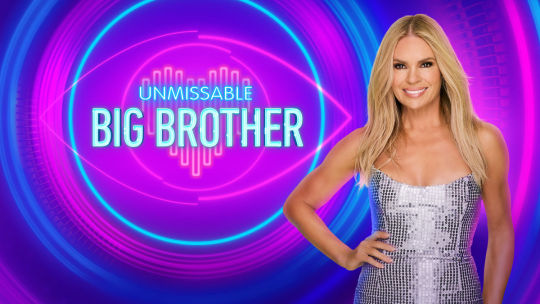
Reality TV has found its perfect method to stay alive. As long as it is chaotic enough for the Internet to create buzz, its content and discussions would be able leak into real life. This seamless integration between reality TV and social media has allowed for a constant cycle of engagement, as viewers eagerly share their opinions, theories, and reactions online. This symbiotic relationship ensures that the show remains relevant and captivating, ultimately solidifying its place in popular culture.
REFERENCE LIST
Denby, A 2021, ‘Toxicity and Femininity in Love Island: How Reality Dating Shows Perpetuate Sexist Attitudes Towards Women’, Frontiers in Sociology, vol. 6, viewed <https://www.frontiersin.org/articles/10.3389/fsoc.2021.641216/full>.
Murray, S & Ouellette, L 2009, Reality TV : remaking television culture, New York ; London New York University Press Cop.
Rice, L 2022, ‘Broadcast Networks 2022: The Year Everyone Started To Wave The White Flag’, Deadline, viewed <https://deadline.com/2022/12/broadcast-networks-death-declining-ratings-streamers-1235203489/>.
2 notes
·
View notes
Text
Breaking Boundaries or Breaking Point? Joey Barton's Diatribe on Women Football Commentators
In the evolving world of football broadcasting, the game's flow is complemented and enriched by the voices describing its details. Recent comments regarding female broadcasters within men’s football made by former footballer Joey Barton has created uproar. As football fans we are not merely spectators, we are active participants, engaging in a larger conversation that helps to shape our experiences of the beautiful game. Interestingly, Barton’s recent remarks extend further than a single conversation: his comments added fuel to existing, wider conversations about diversity. Are we witnessing a necessary evolution in football commentary, or has the push for diversity reached considerable challenges?
What is happening?
Barton’s recent remarks, that began on the social media ‘X’ have sparked numerous reactions across the football community and beyond. Essentially, he is rejecting the idea of women having commentary roles in men’s football, branding this to be part of a broader ‘woke agenda’. His statements are not merely personal observations, deliberately stirring discussion about wider societal change and gender dynamics in the world of football broadcasting.
Joey Barton argues that he’s not against women because of their gender; he doesn’t like the principle of women being awarded roles that are important in men’s football as a way of showing people that they are inclusive. He believes that in football commentary people should be selected based solely on their skillset even if that means that there will be no women.
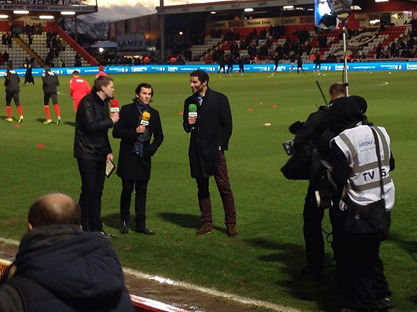
History of Women in Football Commentary
Sports commentary has had a long history of unequal treatment based on gender. Women have had a tough time getting into commentary for many years, and when they do their contributions are often not appreciated or taken seriously. Old-fashioned, stereotypical ideas and conventions about what men and women should do have shaped people’s perceptions of women football commentators. Barton’s comments fit into a similar narrative from history, where women are kept on the sidelines, trying hard to overcome long-standing prejudices. As described by Ali Bowes et al 2023 the increased inclusion of women as pundits in televised match coverage has been a gradual process. In 2007 Jacqui Oatley became the first female football commentator on the television programme Match of the Day since its origins in 1964. The next female was former England International Eniola Aluko, breaking ground in 2014 as the first women in this presenting role. Aluko notably contributed to the television coverage of the 2018 World Cup, pushing her into the media spotlight.
Women reporters have often found it challenging to get players and coaches and even the audience to see them as reporters first and women second. A study made by Swanson 2009 was conducted where he interviewed female journalists. He found that they “spoke of a love or passion for sports” with the majority playing one or more sports in the past. This discredits the suggestion that women commentators are less knowledgeable, qualified, and professional than their male counterparts.
Has there been improvement?
Over a five-year span there has been an increasing number of female pundits. Looking at the research from David Lenton 2022 he identified that the presence of women covering men’s games, either as commentators or pundits has seen remarkable growth. It grew 5650% from 2016/17 to 2020/21 (from 12 appearances to 690). Two seasons ago (2020/21) saw 2500 male commentators and pundits appearing in all televised men’s games - a difference of 1810. While the female representation has grown dramatically, there is still a huge gap to fill.
Push for diversity
The push for diversity is a vital aspect of progress in the sports industry. It helps to break down historical barriers and provide opportunities for individuals regardless of gender. The drivers behind the push include the recognition that talent and expertise are not limited by gender but can be found in individuals with diverse backgrounds and experiences. Alex Scott is a brilliant example of this. After retiring from football in 2017 she broke major barriers by becoming the first female football pundit at the World Cup for the BBC and joined Sky Sports Super Sunday as the first female pundit. Findings from 2017 found that 88.5% of sport reporters were male which makes Alex Scott’s achievement even more impressive.
Like any significant shift, there can be unintended consequences. As depicted by Burch et al 2023, even with female commentator's obvious expertise they often face scepticism about their knowledge and competence in sports. Additionally the rise of online platforms has exposed them to a wave of harassment and abuse, perpetuating a hostile and discouraging environment. However, within the industry the ongoing efforts to promote gender equality are evident. Gender pay gaps still persist, with female journalists earning less than their male counterparts for similar roles and responsibilities.
Some people support Barton and say that everyone has a right to an opinion. However, many others like me disagree with Barton’s outspoken standpoint. Football commentary and broadcasting should be platforms that embrace diversity and inclusivity. Dismissing the idea of women having roles in football commentary sustains current biases and contributes to the ongoing issue of sexism in football commentary. He pointed out how you need to play football at a high level to be able to talk about it, however there are many talented women broadcasters that didn’t play football at all. A couple that spring to my mind is Kate Abdo and Laura Woods. This makes me question whether Barton’s idea of who is ‘Credible’ is more about keeping things the way they’ve always been and maintaining sexism in football commentary.
So what is the solution? Football commentary has always been opinionated people sharing their opinions more than sharing facts. Fans may watch certain sport shows because they like personalities such as the CBS Sports Champions League Show, which is full of personalities including the likes of Thierry Henry, Micah Richards, Jamie Carragher and Kate Abdo. What arguably makes the show entertaining is that they are brilliant personalities while also reporting on the football. This has nothing to do with their gender which is why I don't understand Joey Barton's sexist comments.
Seeing change in the future
Football, as a dynamic and influential part of our cultural landscape, provides a unique platform for connection, dialogue and debate. Barton’s comments have sparked discussions reflecting the extremes within the football community. On one side, fans unite with a shared goal of supporting one another; while on the other side, you have people's passion which blinds their negative comments and viewpoints.
The necessary evolution in football commentary demands a positive change in fan engagement. Supporters should channel their voices to drown out the negativity. Embracing this shift will not only enhance the fan experience but also contribute to creating an inclusive and supportive environment within the realm of football commentary.
What’s your take on Joey Barton’s Views? Is the push for diversity in football commentary a necessary evolution, or does it risk undermining the credibility of the sport? Share your thoughts below and join the conversation.
N0993793
2 notes
·
View notes
Text
LATE-BREAKING NEWS: Hamster and Gretel's heroic journey in Series Finale concludes with a cosmic battle of Mordos [#FIRSTonOneNETnews]

SAN DIEGO, CALIFORNIA -- American animated series "Hamster & Gretel" recently concluded the 2nd and FINAL season Sunday morning (April 13th, 2025 -- Pacific local time) with a series finale dubbed "Who's Afraid of Mordros the Annihilator?". Here, the popular superhero comedy provided a thrilling culmination in the guise of an action-packed finale for the series where Gretel Grant-Gomez, along with their friends, siblings and besties, faced the powerful villain named 'Mordros', who is a chinchilla conqueror, who is supposedly bent on destroying the Earth.
The series starts with Mordros attacking the Tri-State Space Agency Headquarters (TSSAH). Hamster, Gretel & Kevin Grant-Gomez, and Hiromi Tanaka prepare for the battle ahead as the aliens who bestow superpowers arrive, demonstrating the tragic past of Mordros. He had destroyed their home planet years earlier, and in the present day, Hamster and Gretel's superpowers are the only thing that can save the day. But in all this, the emerging love affair between Kevin and Hiromi looms over their chances of victory.
Meanwhile, 'Winifred Grant' and 'Bailey Carter' are probing Mordros' motive, revealing a shocking discovery about his true identity before the programme. But before they can warn their friends, Mordros uses his Earth-drilling machine to turn them, and eventually Kevin into chinchillas as animals, increasing the stakes for the heroes again.
A clever deception by Lauren, otherwise known as The Destructress, provides Hamster and Gretel an opportunity to disable the drill of Mordros, but the operation is thwarted when he engages an anti-hero defense system that de-powers them. Gretel has to dig deep into her inner strength to fight back, eventually destroying the drill and reverting Kevin, Winifred and Bailey into human forms.
As the battle reaches its climax, Ms. Maybank shocks everybody by playing a key role in the defeat of Mordros. It is revealed that Mordros was once Nutmeg, a chinchilla whom she cared for before he was shipped out to space, where he had become clever and powerful because of a space rift. Despite his pining for Maybank, Mordros remains bent on destruction, forcing Gretel into a final fight in a taped-episode ground. Gretel displays her superpowers through a dramatic punch that sends Mordros flying into the space rift to save Earth together with the rest of her team.
After saving Earth from destruction, the heroes spent their time together in peace while forming a lasting friendship. The aliens hesitated to deliver a bigger threat warning because they decided to let the heroes celebrate their triumph before ending the show in celebration, despite the cancellation after Season 2. The television journey of "Hamster and Gretel" cartoon show has ended, but their status as superheroic characters remains beloved by watchers throughout the world. The American audience met their laughter needs while feeling intense suspense while learning important values about teamwork and determination through Hamster & Gretel's satisfying conclusion.
Fans can now catch up on the adventure by availing to legally purchase full season passes first on Apple TV+ and Amazon Prime Video within the next day. Final new episodes in Season 2 arrive next month on Disney+ in America, May 7th of this year.
SCREENGRAB COURTESY: Disney Television Animation BACKGROUND PROVIDED BY: Tegna
-- OneNETnews Online Publication Team
0 notes
Text
These channels have been reported to have coverage to 33.3 million to 47.8 million households from year 1997-2002. They are available through cable, satellite and digital platforms. Transnational channels allow companies to have a platform where they can expand their sales and brands internationally (Collison 2002; Chalaby 2003). The study aims to comprehensively review what transnational television is, its benefits, challenges and impact on globalisation, specifically in the United Kingdom. It will also critically analyze transnational television-related literatures available in peer-reviewed journals. Lastly, the study will review convergence theories that will help provide a deeper understanding of the phenomenal widespread of transnational television. The United Kingdom has seen dramatic changes in television since the 1980s, from the increase in demand for televisions to the increase in the number of networks and programmes (OECD 1997). Changes and transformation in media, specifically television, is commonly characterised by the following: emergence of megaglobal companies which resulted from acquisitions and mergers; privatization of media companies; less restriction on foreign ownership; corporate investments on new advancements in technology such as satellite and cable; and transnationalisation of advertisements (Jin 2007). Acquisitions and mergers are commonly demonstrated by large companies who have the means to expand. Instead of forming and constructing their own, they just merge or acquire and use the machinery and technology of smaller companies. Digital Revolution. The Digital revolution started in 1984 when Apple introduced Mac to the world, commonly characterised by the user-friendly graphics and unique page design and layout tool. The focus in terms of information infrastructures has been on broadband satellite systems, one of which is Read the full article
0 notes
Text

Catherine Zeta-Jones will appear in a thrilling new TV adaptation of Aidan Truhen's thriller novel, The Price You Pay. The Oscar, BAFTA, and Tony Award-winning actress not only stars in the show but also produces it. The television project, working under the title Kill Jackie, reimagines the novel's protagonist as female instead of male, offering a different take on the story. The show is in development for Prime Video with Fremantle and Steel Springs Pictures, with Amazon acquiring rights for a number of European countries, such as the UK, Ireland, and Germany, while Fremantle covers worldwide distribution outside of the United States. Zeta-Jones takes on the role of Jackie Price, a woman who has lived a lavish and secluded life for the past two decades. Having escaped a dangerous past as an international cocaine dealer, she has since dedicated herself to selling fine art and exploiting tax loopholes—all while maintaining anonymity. But just as she starts to feel a sense of boredom creeping into her life, everything takes a terrifying turn. She learns that she has been hired to be killed by a special team of killers, known as The Seven Demons. Filming is planned to take place next month with locations being Bilbao, Lisbon, London, and Swansea. David Shankbone, CC BY 3.0 https://creativecommons.org/licenses/by/3.0, via Wikimedia Commons The programme brings together an innovative team of creatives including Tom Butterworth (Gangs of London) and Conor Keane (North Sea Connection) and is being directed by Damon Thomas (Killing Eve). The book, published in 2018, was penned by Aidan Truhen—a pseudonym for writer Nick Harkaway, who later came forward. Butterworth called the book a "gonzo thriller" and was excited to bring its dark humor and offbeat energy to a compelling TV show. "Our goal is to twist and blow out his world into something equally funny, dark, mad, and quirky.". Or die trying," he told her. This is another high-profile television job for Zeta-Jones after her recent Disney+'s National Treasure: Edge of History and Netflix's Wednesday outings, in which she acted the part of Morticia Addams. Though she has not featured in a film for close to a decade now, she is also cast to appear in director Cathy Yan's new film The Gallerist. Expressing her excitement about Kill Jackie, Zeta-Jones shared, “I’m thrilled to be a part of Kill Jackie (w/t) both behind and in front of the camera. The opportunity to bring this multifaceted character to life, and explore a female-driven plot that encompasses empowerment, identity, and redemption is something I’m looking forward to.” The financial model behind the series mirrors the changing nature of TV production. Fremantle and Prime Video are employing a system similar to Costiera, a show that features Jesse Williams, where Amazon retains rights in certain markets while Fremantle distributes worldwide. This joint venture permits greater outreach and artistic freedom in the modern streaming age. Fremantle’s global drama and film head, Christian Vesper, described Kill Jackie as a blend of thrilling storytelling and dark comedy. “It’s an irreverent and contemporary thriller, which is all at once dramatic, escapist, and darkly comedic. Catherine Zeta-Jones shines as Jackie, and together with our incredible creative team, twisting storyline, and elaborate international backdrop, I’ve no doubt audiences all over the world are going to be hooked,” he said. Steel Springs Pictures' Peter Lawson, also an executive producer on the film, remembered his first reaction when he read the novel. "When I first got my hands on Nick's novel, I knew this project needed a team of creatives who shared a dark sense of humor and a touch of madness to bring this crime caper to life.". We’re thrilled to have found that in the captivating creative force of Catherine Zeta-Jones, the character-driven hilarity of writer Conor Keane and showrunner Tom Butterworth, and the sure-handed brilliance of director Damon Thomas,” he said. Co-produced by Fremantle and Steel Springs Pictures, Kill Jackie boasts a heavy-hitting roster of executive producers such as Peter Lawson and Jose Augustin Valdes for Steel Springs, Dante Di Loreto for Fremantle, Jeffrey Levine, Butterworth, Thomas, and Zeta-Jones. Co-writer Keane is an associate producer. José Luis Escolar's Deabru Kalea Filmeak will also produce in Bizkaia. Rights to the novel were acquired under an agreement negotiated by the Curtis Brown Media Rights Team on behalf of Patrick Walsh at PEW Literary. Representation for the major players is UTA and Ziffren Brittenham LLP for Zeta-Jones, and Curtis Brown's Nick Marston and Katie Battcock for Butterworth. With a global cast and crew, an engaging narrative, and an iconic lead actress to guide it, Kill Jackie is becoming a compelling new addition to the TV landscape. The show has high-stakes action, dark humor, and a complex female lead who will do whatever it takes to stay alive in impossible circumstances. Viewers of crime dramas with a suspenseful edge and witty writing will surely be keeping an eye on this highly anticipated show. Read the full article
0 notes
Text
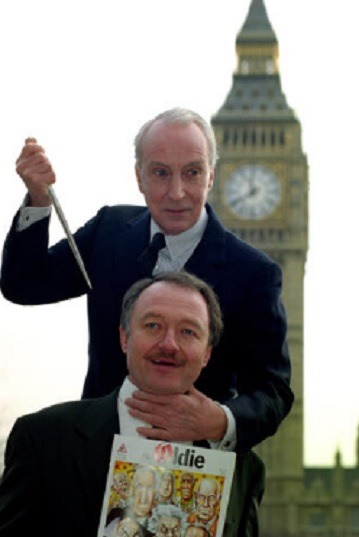
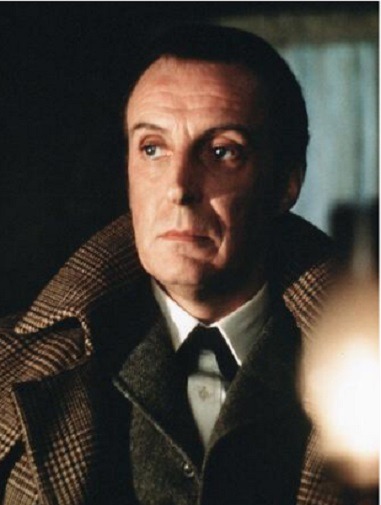

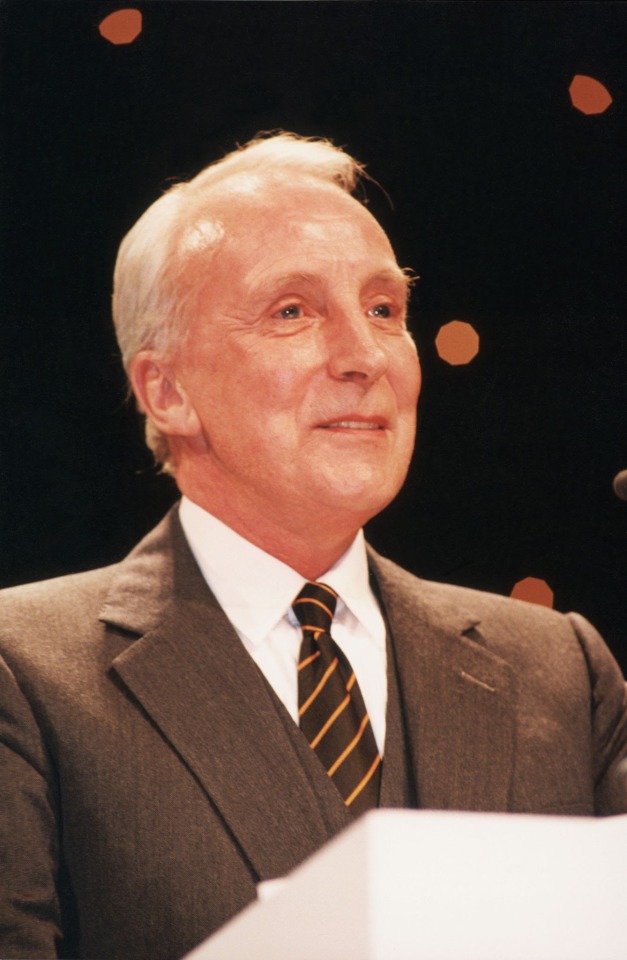
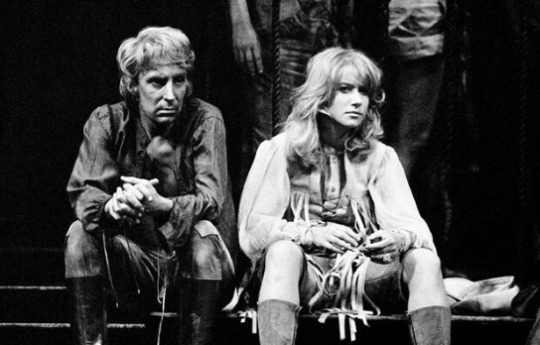
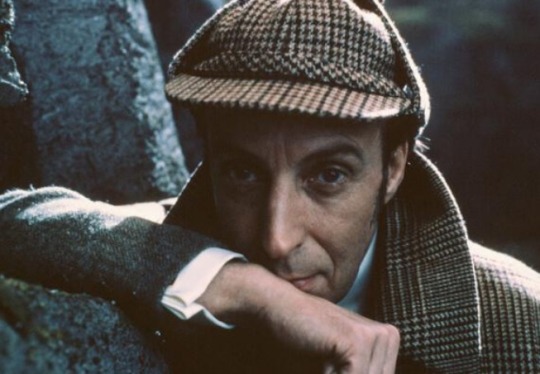
On April 7th 1934 Ian Richardson was born.
A great classical actor, he was best known to TV viewers as the Machiavellian Urquhart in House of Cards, in his golden years at the Royal Shakespeare Company from 1960 to 1975, he played a long line of leading roles, television and film later brought Richardson wider renown.
Born as Ian William Richardson the only son and eldest of three children of Margaret and John Richardson in Edinburgh, Ian was educated at Balgreen and then Tynecastle schools, he thentrained for the stage at Glasgow’s College of Dramatic Art, with lightning speed, Richardson, at the age of 24, found himself playing Hamlet. Two seasons at Birmingham were followed by a swift transfer in 1960 to neighbouring Stratford where Richardson became a vital component. of the Royal Shakespeare Company where we was one of the founders.
After leaving the RSC, Richardson became a somewhat nomadic figure, turning up on Broadway as Higgins in My Fair Lady.
For a while he was on the dole — one morning he was even scrabbling round Covent Garden collecting fruit and vegetables. He also suffered a nervous breakdown, as a result of which he was sent to a nursing home run by nuns in Regent’s Park; after three weeks’ treatment he had recovered sufficiently to return home. I suppose it was his time unemployed that took him into a more regular career on the small screen.
From the late 1970′s onwards, he carved out a prosperous career in TV and film. Of course he had already made many TV appearances before now but audiences were peaking just at the right time for the wider public to appreciate his acting skills.
Tinker Tailor Soldier Spy, Private Schultz, Porterhouse Blue were the type of programmes I was watching Richardson in, he also played Sherlock Holmes and Dr Joseph Bell in shows about the detective. Then of course there was House of Cards and the brilliant portrayal of the anti-hero Francis Urquhart. He won the BAFTA Best Television Actor and nominations for the following two series.
In June 2006, he was made an honorary Doctor of the University of Stirling. The honour was conferred on him by the University’s Chancellor, fellow actor Dame Diana Rigg.
His final film appearance was as Judge Langlois in Becoming Jane, released shortly after his death.
During the last 15 years of his life he appeared five times on television acting opposite his son Miles Richardson, though this was usually with one or the other in a minor role
20 notes
·
View notes
Text
Understanding Energy Efficiency
Energy efficiency is all about using less energy to perform the same task. For example, switching from traditional incandescent light bulbs to energy-saving LED bulbs can dramatically reduce the electricity needed to light your home. But saving energy goes beyond just changing light bulbs. Here are some actionable steps you can take.
Top Energy Saving Tips
1. Optimize Heating and Cooling Systems
Heating and cooling account for nearly half of the average home's energy consumption, according to the U.S. Department of Energy. To save money, set your thermostat to 78°F in the summer and 68°F in the winter. Every degree you lower the thermostat in the winter (or raise it in the summer) can save you about 1% on your heating bill.
Use a Programmable Thermostat: This allows you to automatically lower the heat or air conditioning when you’re not home. These thermostats are relatively inexpensive and can save up to 10% on energy costs annually.
Seal Leaks and Insulate: Properly sealing windows, doors, and ducts can prevent drafts and maintain your home’s temperature more efficiently. This step is cost-effective and can lead to significant savings.
2. Switch to Energy-Efficient Appliances
Older appliances, such as refrigerators, washers, and dryers, consume much more energy than newer, energy-efficient models. If you’re in the market for new appliances, look for the ENERGY STAR label, which ensures the product meets energy efficiency guidelines.
Example: An ENERGY STAR-rated refrigerator uses up to 15% less energy than a non-rated model. Over time, the energy savings from using efficient appliances can offset the initial purchase cost.
3. Utilize Natural Light
Take advantage of natural light during the day to reduce the need for artificial lighting. Open blinds and curtains to allow sunlight to brighten your home, reducing your reliance on electric lights.
Example: By positioning workspaces and frequently used rooms to receive natural light, you can save on lighting costs.
4. Unplug Electronics When Not in Use
Many electronics consume power even when turned off, a phenomenon known as "phantom load" or "vampire energy." Unplugging devices like phone chargers, gaming consoles, and televisions when not in use can prevent this unnecessary energy drain.
Use Power Strips: Plug multiple devices into a power strip and turn it off when the devices are not in use. This simple action can save up to 10% on your energy bill.
5. Consider Solar Energy
While the initial cost of solar panels can be high, there are cheaper ways to integrate solar energy into your home without breaking the bank. Consider small-scale solar products, such as solar water heaters or solar-powered outdoor lights, to start saving on energy costs.
Promotional Tip: For those interested in exploring solar energy further, Solar Buyback offers competitive buyback rates and can help you save even more by selling your excess solar energy back to the grid.
Check our website for more details at https://solarbuyback.com/
0 notes